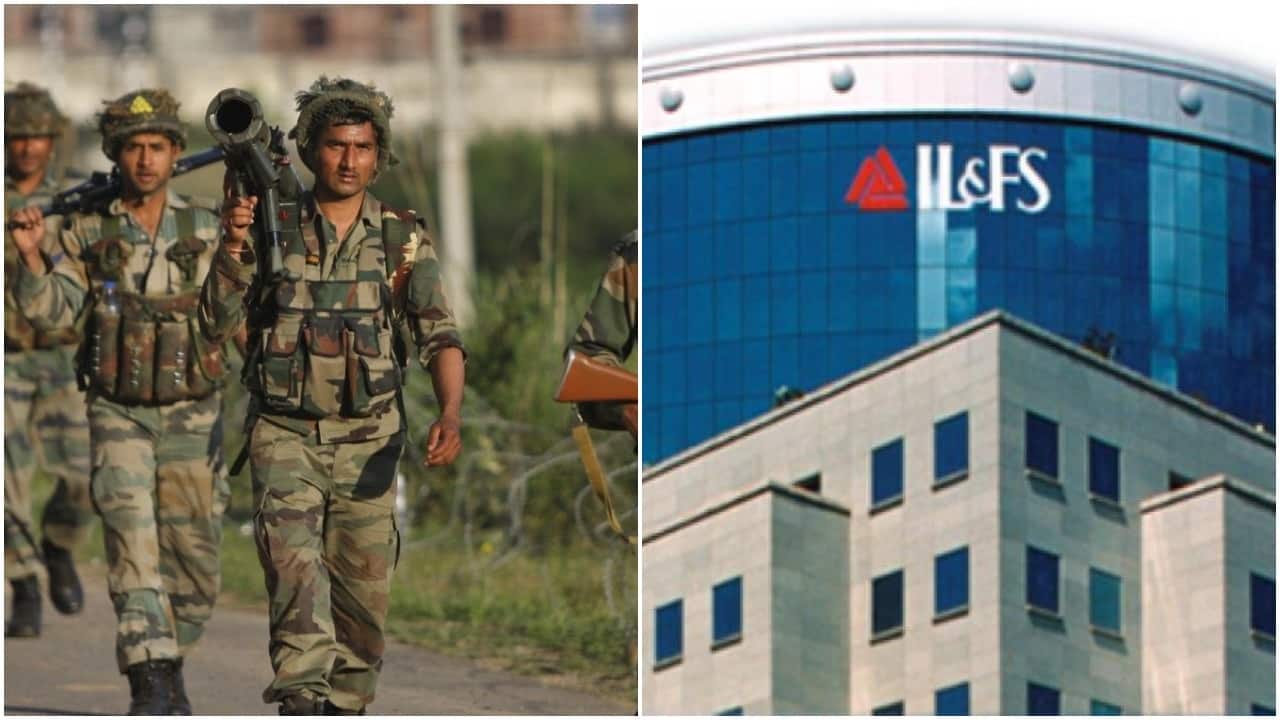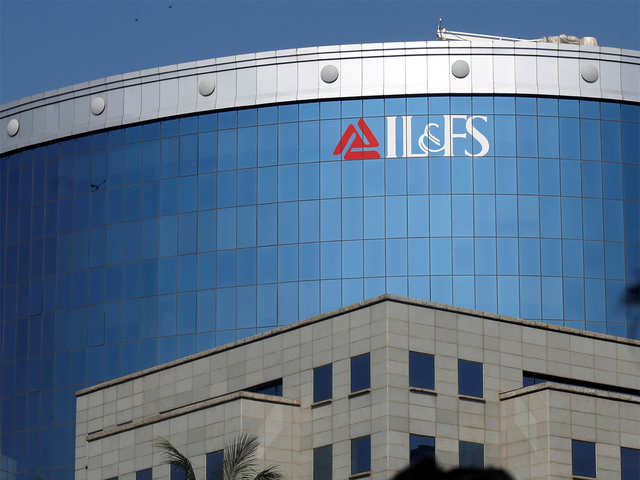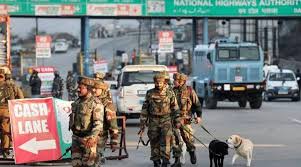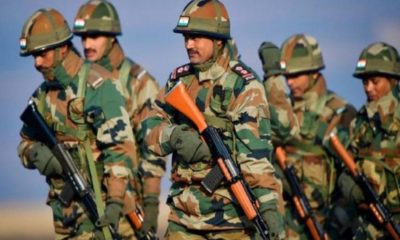National
Rs 210 crore of Army insurance funds sunk in IL&FS bonds

One of the key prongs for the welfare of ex-servicemen — the Army Group Insurance Fund (AGIF) — has exposure to toxic IL&FS bonds amounting close to Rs 210 crore. This means that crores worth of insurance premiums, covering all ranks from generals to JCOs and jawans, are at risk of being lost.
Recently, officials of the Indian Army met the new board of the IL&FS seeking a solution of this issue. There are no direct answers on who will pick up the liability.
A questionnaire was sent to IL&FS, asking whether the AGIF had any exposure to its bonds and what was the quantum involved.
Chief Communications Officer, IL&FS group, said, “Thanks for reaching out to us. We would like to decline comments on the same.”

Similarly, a questionnaire was sent to the Army PRO Lt Col Mohit Vaishnava and he was also spoken to by as well, but he failed to respond to both.
Here is a primer on the AGIF, from the Army’s own literature on the subject and a construct of how it is funded.
Under the banner of Soldiers2ndLife, the AGIF explainer is succinct.
Maturity Benefits:
The benefit, which is the accumulation of the saving element of the amount contributed by members along with interest and bonus, is paid on discharge/release of a serviceman. The maturity amount is also paid along with death benefits to the next of kin in case of death of any member. A member can withdraw 50 per cent from the maturity benefit after 15 years of service for the purpose of education/marriage of wards. In addition, a member can withdraw up to 90 per cent of the maturity amount for repair/renovation of house or for the purpose of conveyance during the last two years of service before superannuation.
Insurance:
Insurance benefits to the families of those Army personnel who may die while in service is Rs 50 lakh for officers and Rs 25 lakh for JCOs/OR. The monthly subscription is Rs 5,000 and Rs 2,500 respectively.
Extended Insurance (EI):
The Army Group Insurance Fund Extended Insurance (EI) Scheme provides insurance cover to servicemen after leaving service. It provides Rs 6 lakh for officers and Rs 3 lakh for personnel below officer rank (PBOR) for a period of 26 years after retirement or 75 years of age, whichever is earlier. The amount is received by the family of the ex-serviceman in case of his death. The amount has been recently revised and is now Rs 10 lakh for officers and Rs 5 lakh for PBOR for all those who joined the scheme after January 1, 2014. For those who joined earlier, the amount will remain at the earlier rate of Rs 6 lakh and Rs 3 lakh for officers and PBOR respectively.

Disability Cover:
This concerns an individual who becomes disabled out of service prematurely due to injury or disease. The officers and JCOs/OR with 100 per cent disability will get an amount of Rs 25 lakh and Rs 12.5 lakh respectively. This amount gets proportionately reduced for lower element of disability upto 20 per cent. An ex gratia disability allowance is also granted by AGIF in case a member with 100% disability has been recommended a constant attendant.
AGIF Scholarship Scheme:
AGIF Scholarship Schemes for the sum of Rs 40,000 per annum are provided for wards of officers, JCOs and OR in 12 Army Welfare Educational Institutions (AWES) institutions.
While the Army chose to deny the earlier IANS story on how Army welfare funds may have been deployed in IL&FS bonds, saying, “It is informed that welfare funds of the Indian Army are invested only in nationalised; scheduled banks; PSUs as per existing policy. There is no investment from Army Battle Casualties Welfare Fund and Army Central Welfare Fund in IL&FS bonds as reported. This news article is rebutted for being false, infructuous and mala fide.”
IANS has chosen to stick to its report. Here’s how Army Group Insurance Fund (AGIF) is infected with this virus.
In its earlier story, now validated, IANS wrote: IANS learns that a few sections of the armed forces, primarily the army, have invested their corpus of funds in the once AAA-rated IL&FS bonds to secure their future. The Indian Army has three specific funds in which fellow countrymen can contribute – Army Welfare Fund Battle Casualties (set up in 2016 after the Siachen avalanche disaster and the Pathankot/Uri incidents), Army Central Welfare Fund and the Paraplegic Rehabilitation Centre Pune – towards the members/families of the armed forces who have made the supreme sacrifice for the nation. It is still not known whether these funds have invested in the virus-laden bonds.
The government does not fund the Army Group Insurance Fund scheme at all. A comparison of insurance cover and duration of cover provided to the generals and the jawans by the AGIF is as follows:
* Number of Generals: 350 (approximately)
* Monthly premium: Rs 5,000
* Annual premium: Rs 60,000
* Lt.-Generals insurance cover up to 60 years
* COAS insurance cover up to 62 years
* Annual contribution Rs 60,000
* Total annual contribution by the Generals is: Rs 60,000 multiplied by 350, which amounts to Rs 2 crore and 10 lakh.
Number of Jawans: 13,00,000 (approximately)
Annual contribution: Rs 30,000
Total annual contribution by jawans is: Rs 30,000 multiplied by 13,00,000, which amounts to Rs 3,900 crore.
These figures apply to just one year. The big question is: Who is tracking these funds? There are no answers to who will bear the liability if the huge amounts parked in toxic IL&FS bonds turn to junk. The first step will be taken if the army authorities begin by acknowledging there is a problem at hand.
National
Foodman Vishal Singh Honored for Hunger Free World Mission in Bangkok

Lucknow: Vishal Singh, a renowned social worker from Lucknow, also known as Foodman, has once again made India proud. He was honored by the Happy Hands Gloves Cooperative Limited Company in Korathai, Thailand, for his work with the Hunger Free World Mission.
The Hunger Free World Mission’s meeting was held in Korathai, Thailand, under Vishal Singh’s leadership. Representatives from several countries, including Mr. Raja Dwivedi (Managing Director of Happy Hands Gloves Limited), Thailand Coordinator Mr. Raja Mishra, and member Mr. Varun Singh, attended the event.

Under Vishal Singh’s leadership, the attendees took a pledge to work together toward creating a hunger-free world.
Speaking on the occasion, Vishal Singh explained that the main goal of the Hunger Free World Mission is social participation. He said the mission is not just about feeding people but also about meeting other basic needs of those who are struggling. The mission focuses on helping families of terminally ill patients in hospitals by providing food and shelter. It also works to fulfill essential needs like education, jobs, and care for the elderly.
For the last 16 years, the Vijay Sri Foundation has been providing free services, benefiting thousands of people. Vishal Singh highlighted that the mission aims to gain global recognition like other organizations such as WHO, WWF, and Red Cross, which work for social causes.
During this meeting, Vishal Singh was appointed as the Chairman of the Hunger Free World Mission by representatives from various countries. They also discussed holding regular meetings in different countries to push the mission forward.
Business tycoon Dr. Abhishek Verma has also supported this humanitarian mission, vowing to promote the idea of “Seva Parmo Dharma” (Service is the highest duty) worldwide. Vishal Singh praised him, stating that people like Dr .Abhishek Verma inspire others to work for the betterment of society.
Recently, Romania’s Ambassador, Mr . Daniela Sezonov Ţane, invited Vishal Singh to the Romanian Embassy in Delhi, where they discussed the mission in detail. Impressed by his humanitarian work, she honored Vishal Singh and invited him to Romania to take the mission forward .
Food man Vishal Singh has been serving the people of India for the past 16 years. Through the Vijay Sri Foundation, he provides free meals to cancer patients & their families ,shelter, and education for women & children along with running free old-age homes in Lucknow.
In addition to his humanitarian work, Vishal Singh also addresses issues like crime and corruption through his role as Chairman of Seva Path Media and Managing Director of Vijay Sri Foundation.

During the COVID-19 pandemic, Vishal Singh and his team worked tirelessly to provide food and help to the needy, including starving children, elderly citizens, and pregnant women. Despite contracting the virus himself, he continued to assist others after his recovery. He even created a life-saving oxygen regulator using household items, which was praised by doctors both in India and abroad.
In his address at the meeting, Vishal Singh spoke about his mission to create a hunger-free world. He pointed out that India’s large population, along with issues like unemployment and poverty, has caused the country to fall on the Hunger Index. He urged people to contribute just one handful of grains daily to help create a hunger-free world.
He concluded by saying that through social participation, we can empower the people around us, meet their basic needs, and work together to build a stronger, more prosperous, and developed society.























